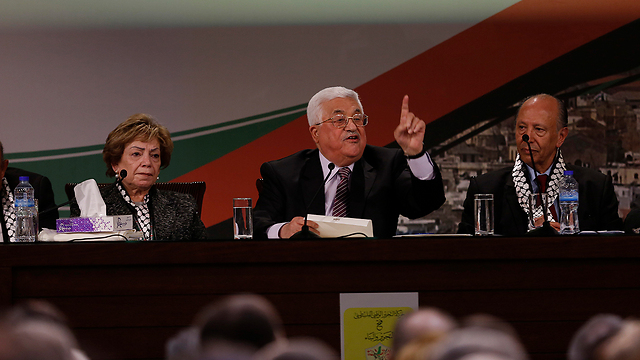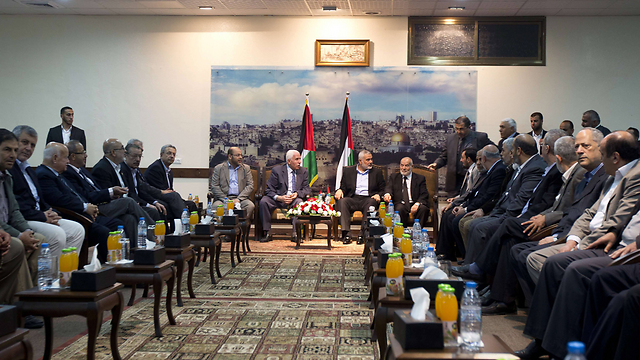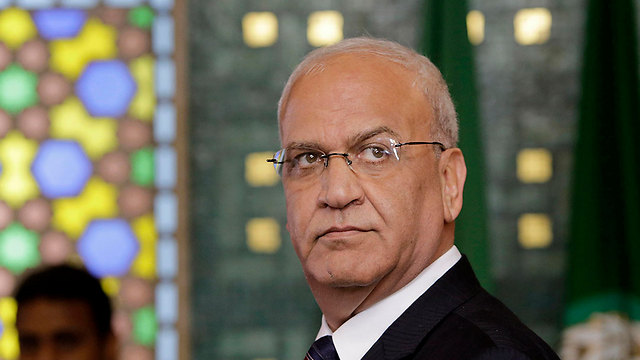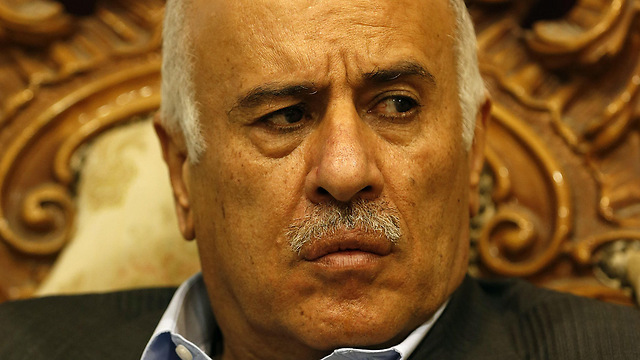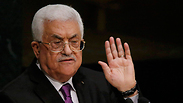

Palestinian congress to convene as Abbas seeks to strengthen hand
Rivals see ruse in Palestinian political forum as Abbas seeks to forge united front against Israel, USA, in light of US embassy move to Jerusalem, failure of Fatah-Hamas reconciliation; officials urge Abbas to postpone meeting, last held session in 2006.
The parliament of the Palestine Liberation Organization will convene for the first time in decades on Monday, as ageing President Mahmoud Abbas seeks to strengthen his hand ahead of the US Embassy move to Jerusalem.
Analysts said the three-day meeting of the Palestinian National Council (PNC) in the West Bank city of Ramallah is unlikely to produce major policy shifts, but it will elect the 18 members of the PLO's executive committee that effectively forms Abbas's cabinet.
More than 100 of the 740-member body will be absent, including dozens allied to the Islamist terror group Hamas—the largest Palestinian party behind Abbas's Fatah—which have signed a letter opposing the meeting.
On Saturday Hamas called on Abbas to postpone the assembly until unity was reached between rival factions.
Abbas has billed Monday's convening of the PNC, an assembly within the umbrella Palestinian Liberation Organization, as a chance to forge a united front against Israel and the United States.
But the event in Ramallah, the Palestinian hub in the West Bank, has revived old feuds between Abbas's Fatah party and rivals from Islamist and other factions, many of whose members cannot attend due to Israeli restrictions.
Last week, 109 PNC members urged Abbas to postpone the meeting to allow greater participation. The call went unheeded, and on Sunday, censure of the president became more pointed.
"The PNC meeting that will be held in Ramallah is not legitimate, is factional, and does not represent all of the Palestinians," Mushir Al-Masri, a lawmaker in Hamas, told reporters at a meeting of PNC critics in Gaza.
The Gaza Strip, under de facto Hamas control since 2007, has been a focus of Palestinian infighting. Though Hamas formally resubmitted to Abbas's authority last year, their reconciliation has been held up by disputes over power-sharing.
"We stress the need to regain Palestinian unity and end the policy of exclusion and unilateralism by the leadership of the Palestinian Authority and its hijacking of Palestinian institutions," said Masri.
Khader Habib of Islamic Jihad, a Hamas political ally, accused Abbas of "holding the PNC meeting to stress his exclusion of all those who oppose him".
"The president is keen for the conference to bring about only decisions that suit his own project," Habib said.
Analysts say Abbas, elected to a four-year term in 2005, is seeking to further centralize power within the institutions he controls.
Hugh Lovatt, a regional expert at the European Council for Foreign Relations, said he expected the meeting to "mark a further milestone in Abbas's consolidation of power and marginalization of political rivals".
The names selected for the executive committee will be seen as a key indicator of who is in favor in moderate Palestinian politics, Lovatt added, and even "provide an indicator of frontrunners in the race to succeed Abbas".
Abbas will be one of three representatives of Fatah, along with long-time chief negotiator Saeb Erekat and Azzam al-Ahmed, negotiator of the failed reconciliation agreement with Hamas.
Seven smaller parties, excluding Hamas, will each nominate a candidate, while eight independents will also be selected.
At least 10 of the current 18 committee members are expected to be replaced.
"The mere fact that he is looking to an institution that has not met for 20 years just shows how illegitimate he is," said Diana Buttu, a former Abbas employee and now fierce critic.
The split with Hamas has made elections impossible, so he has remained in power without a mandate.
Hamas and Islamic Jihad oppose Abbas' strategy of peace talks with Israel. However, diplomacy has been on hold since 2014 and many Palestinians' views have hardened over US President Donald Trump's recognition late last year of Jerusalem as Israel's capital.
The PNC last met in extraordinary session in 2009 to replace several members of the PLO’s Executive Committee. It last held a regular session in 1996.
Political analysts in Gaza said a PNC meeting without wide factional representation would weaken the legitimacy of any decisions it may take.
Earlier on Sunday dozens of masked youths gathered on the Palestinian side of the Gaza Strip's main crossing with Israel, threatening to block any PNC official from leaving for the West Bank to attend Monday's session.














